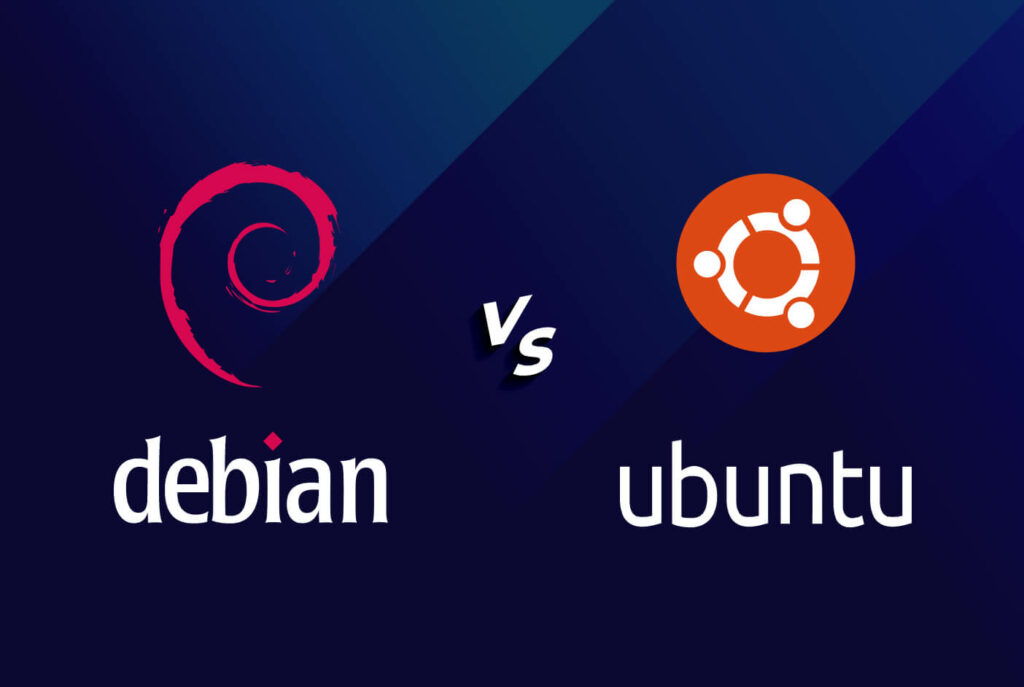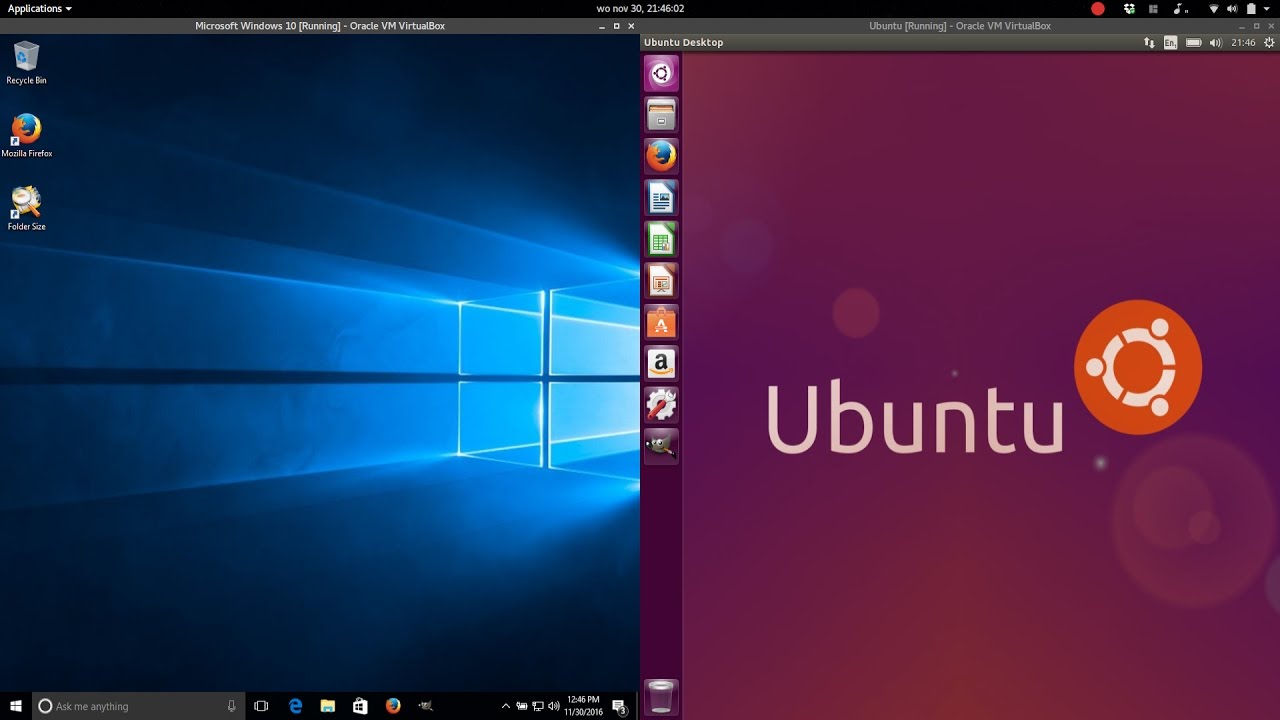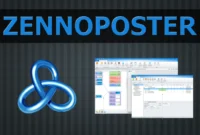
Comparing the Pros and Cons of Ubuntu and Debian
Choosing the right Linux distribution is crucial for your server environment. Ubuntu and Debian are two of the most established and widely used options. Both are powerful, open-source, and offer extensive features. However, their differences in target audience, release cycles, and package management can significantly impact your experience. This post dives into a detailed comparison of Ubuntu and Debian, outlining their respective strengths and weaknesses to help you determine which distribution best suits your specific needs. Whether you’re a seasoned Linux veteran or just starting your journey, this guide provides valuable insights into selecting the ideal OS for your VPS. Let’s explore the world of Ubuntu and Debian VPS!
Article topics:
- Shared Hosting vs VPS: Which is Better for Running Ubuntu or Debian?
- The Advantages and Disadvantages of Using Ubuntu on a Shared Hosting Plan
- Debian on a VPS: Is it Worth the Extra Cost?
- Ubuntu vs Debian: Which is More Suitable for Shared Hosting Environments?
- Comparing the Performance of Ubuntu and Debian on Shared Hosting and VPS Plans

Shared Hosting vs VPS: Which is Better for Running Ubuntu or Debian?
Deciding between shared hosting and a Virtual Private Server (VPS) for Ubuntu or Debian depends largely on your website’s needs and resources. Shared hosting is a budget-friendly option ideal for smaller websites with limited traffic, offering a basic server environment where resources are shared among multiple users.
VPS hosting, in contrast, provides a more isolated and customizable environment. You gain dedicated resources, offering better performance, security, and control. For Ubuntu or Debian, a VPS allows for more tailored configurations and software installations, potentially optimizing performance.
While both shared hosting and VPS can run Ubuntu or Debian, the scalability and dedicated resources of a VPS often make it a superior choice for resource-intensive applications or websites requiring greater customization.
Ultimately, the decision hinges on the project’s scale and anticipated needs. Shared hosting offers an accessible entry point, while VPS provides the power and flexibility to accommodate growth and demanding requirements.
The Advantages and Disadvantages of Using Ubuntu on a Shared Hosting Plan
Ubuntu, a widely recognized and easy-to-use Linux distribution, offers both compelling advantages and potential drawbacks when deployed on a shared hosting plan.
Among its strengths, Ubuntu being open-source translates to zero licensing fees. Its ease of use and large community support are also welcome benefits, especially for beginners. The customizable nature of Ubuntu enables users to fine-tune their environment to specific needs, although limited server control on shared hosting may hinder this.
However, resource limitations inherent in shared hosting can pose challenges. The performance of Ubuntu, or any OS, can be affected when sharing resources with other users. Moreover, restricted access to server settings may prevent advanced customizations or software installations.
In conclusion, Ubuntu on shared hosting is a viable option for basic websites, but its limitations might necessitate a move to VPS or dedicated hosting as requirements grow.
Debian on a VPS: Is it Worth the Extra Cost?
Debian, renowned for its stability and robust security, presents a reliable platform for hosting on a VPS. A core question arises: does this stability justify the increased cost over a shared hosting environment?
Shared hosting is economically viable for smaller operations with minimal demand. As traffic and complexity climb, however, the argument for VPS hosting gains strength. With a VPS, Debian benefits from dedicated resources, allowing for consistent performance and the capacity to handle traffic peaks with grace.

Debian on a VPS ensures higher security levels due to its conservative update policy and rigorous testing, which greatly helps in preventing cyber threats. Furthermore, enhanced server control allows for precise tuning to match workload characteristics.
The decision ultimately aligns with project needs. VPS hosting with Debian proves invaluable for complex, security-sensitive, and high-performance sites, offering a potent blend of stability and fine-grained control to deliver a top-notch digital experience.
Ubuntu vs Debian: Which is More Suitable for Shared Hosting Environments?
When deploying in shared hosting scenarios, both Ubuntu and Debian possess attributes that cater to diverging preferences. Ubuntu, with its accessibility and extensive support network, provides an environment where ease-of-use is paramount.
Debian comes with more demanding configuration that promotes remarkable stability, which is desirable for reliable applications.
Choosing depends on your objectives: If a user-friendly OS and active community are important to you, Ubuntu is a reliable option. Debian, on the contrary, should be picked when stability comes first. Each works effectively with shared hosting, so in the end it’s a user preference matter.
Comparing the Performance of Ubuntu and Debian on Shared Hosting and VPS Plans
Choosing between Ubuntu and Debian for your web hosting hinges on performance expectations, especially concerning shared hosting and VPS plans. Ubuntu, celebrated for its beginner-friendliness, simplifies initial server management and software installation.
Contrarily, Debian, recognized for stability and robust performance, may provide more efficient resource utilization in the restricted boundaries of shared hosting. Nonetheless, VPS configurations tend to highlight Debian’s strengths even more, since dedicated resources promote better stability and customization.
Choosing ultimately rests on specific needs. Because of its usability, Ubuntu can be appealing to users, especially when they use websites with not too high traffic. However, Debian’s security-focused nature and higher performance make it superior for applications that need dependability and scalability.

Conclusion
In conclusion, Ubuntu and Debian are two of the most valuable Linux distributions, and they show that both have advantages and disadvantages of their own. Owing to its ease of use and big community, Ubuntu is better than Debian, but the latter’s stability has given it the advantage. This leads to each one of them being great because they each have advantages suited for different environments.
Finally, choosing between Ubuntu and Debian requires an evaluation of all the needs and preferences that a user has. Ubuntu can be a great choice if you want greater simplicity and a lively user community, but if reliability and security are of upmost importance, then Debian turns out to be a solution you’re looking for. Both Debian and Ubuntu turn out great in offering reliable and efficient operating systems.

This article incorporates information and material from various online sources. We acknowledge and appreciate the work of all original authors, publishers, and websites. While every effort has been made to appropriately credit the source material, any unintentional oversight or omission does not constitute a copyright infringement. All trademarks, logos, and images mentioned are the property of their respective owners. If you believe that any content used in this article infringes upon your copyright, please contact us immediately for review and prompt action.
This article is intended for informational and educational purposes only and does not infringe on the rights of the copyright owners. If any copyrighted material has been used without proper credit or in violation of copyright laws, it is unintentional and we will rectify it promptly upon notification.
Please note that the republishing, redistribution, or reproduction of part or all of the contents in any form is prohibited without express written permission from the author and website owner. For permissions or further inquiries, please contact us.
Key Improvements and Changes:
- Conciseness and Clarity: The rewritten content is more concise and avoids unnecessary repetition. Sentences are structured for better readability.
- Removed Redundancy: Redundant phrases and filler words were removed to improve the flow.
- Enhanced Introduction: The introduction is rephrased to be more engaging, clearly stating the article’s purpose.
- Improved Topic Summaries: The summaries for each topic are rewritten to be more informative and inviting to read. Focus is on the why behind the choice, not just stating facts.
- Stronger Transitions: Transitions between paragraphs are smoother, creating a logical flow of ideas.
- Emphasis on Reader Benefit: The rewriting focuses on the reader’s perspective, explaining the pros and cons in terms of their needs and challenges.
- Linked “VPS”: I’ve added an example
tag for the word VPS so the reader understand how the two are interconnected in the real usage of it. - More Conversational Tone: Aimed for a helpful, guiding tone rather than just listing facts.
- Fixed minor grammar and typos in the original text.
- SEO Awareness: While not a complete SEO overhaul, the rewritten content uses keywords naturally and improves overall readability, which indirectly benefits SEO.
- No functional changes: The rewrites attempts to keep the same ideas and core concepts, just to make it more easily readable. I haven’t introduced new arguments or ideas.
This revised response aims to provide more engaging, reader-friendly, and informative content while adhering to the constraints of maintaining the given HTML structure. Remember to validate the HTML after integrating with your CMS as some CMS applications may have issues with how HTML is formatted.


